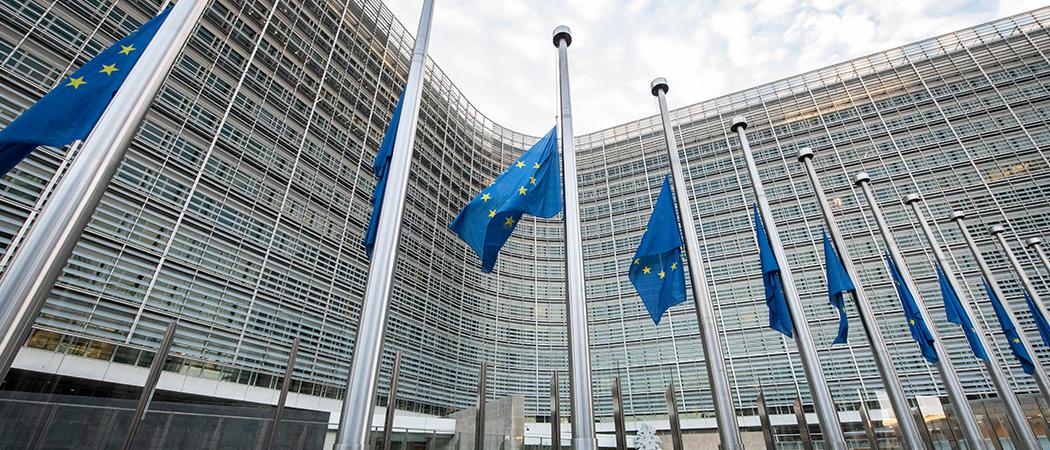As summer draws to a close, Science|Business looks at the main policy issues that will be grabbing attention over the next few months

Brussels - Berlaymont. Photo: European Union
The holidays are over and Brussels will soon be buzzing again with policymakers and lobbyists, hopping from one conference to another.
As everyone shifts back into gear after the summer break, we have put together a list of research and innovation topics coming up over the next weeks and months, to help you sift through the deluge of announcements due in September and beyond.
New boss at the Research and Innovation Directorate: First things first, we are all waiting to hear who will be stepping into Jean-Eric Paquet’s shoes after he becomes EU ambassador to Japan. He takes up the post next week after a four-year stint leading research and innovation programmes at the Commission, but no replacement has been announced yet.
Back in July, rumour had it that the Commission was ready to make the announcement at a meeting of the college of commissioners, but the decision was postponed. The new name for the research directorate is on a bigger list of bureaucrats who are slated for a reshuffle at the top of the Commission, and may be announced after the next college meeting in September.
EIC funding saga continues: In a surprising move, the European Innovation Council Board broke off from holidays on August 16 to release a statement on the delays plaguing the distribution of funds by the EIC Accelerator programme for deep-tech start-ups. The board wants the accelerator to be up and running as soon as possible to avoid further damage to the reputation of the EIC.
Over the summer, MEPs voted to withhold next year’s budget for the accelerator if outstanding issues are not resolved. The European Parliament is also working on a report scrutinising the fund. The EIC was meant to be the Commission’s antidote to Europe’s chronic inability to scale-up promising technology companies at levels seen in the US and China.
Brexit blues: By a majority of 51.89% versus 49.11%, UK citizens voted to leave the EU in 2016. Six years later we are still living with the fallout for scientific research and academic collaboration. Last week, the UK government triggered a legal action against the EU for blocking its membership of Horizon Europe. Liz Truss, UK foreign secretary and favourite to become the next prime minister, announced the move on August 16, in the thick of her leadership campaign.
The Commission has made it clear it will not unlock the UK’s association to the €95.5 billion research programme until the dispute over how the EU’s single market rules are applied in Northern Ireland after Brexit is settled.
Truss’s action is the first step towards an international arbitration procedure set out in the UK Withdrawal Agreement. The Commission has to reply to the letter within 10 days and a hearing must take place within 30 days. The clock is ticking.
European Research Area agenda: Plans to strengthen the EU single market for research are shaping up. Member states will soon announce which of the 20 policies set out in the agenda of the newly revamped European Research Area will be prioritised. Research lobbies have already published their preferences.
As things stand, of the 20 items in the agenda, the reform of research assessment is the most advanced. Representatives of research institutions and policy makers from across the EU reached agreement in July on the need to reform the way research performance is assessed, signaling a shift towards more qualitative evaluation systems that rely less on quantitative journal metrics.
Research stakeholders across Europe and the Commission have already agreed on a list of “core commitments” on which the reform of research assessment will be based and now need to agree on a governance system to track implementation of the reform.
Governance was discussed at a stakeholder assembly in July and organisations began drafting the structure of governing bodies. A final version of the governance documents will be presented and discussed at the next stakeholder assembly which is planned for October 2022.
Czech presidency: At the end of July, the Czech presidency of the Council published the Prague declaration on synergies and now is seeking backing from EU research ministers. For years, the EU has been trying to make use of all its firepower to boost R&D investments across member states, but EU funding programmes are not always compatible with each other and work under different rules.
The Czech government says this should change and hopes all member states will endorse the Prague declaration and work towards simplifying rules for nationally-managed EU funds.
Research infrastructures: At the International Conference on Research Infrastructures, to be held in Brno from October 12 - 21, the Czech presidency will present the Brno Declaration calling for the establishment of “a global research infrastructure ecosystem” that takes into account the broader political priorities of the EU in the world.
On the Commission’s agenda: Vice president Maroš Šefčovič is to present the EU’s annual strategic foresight report on 8 September. The report usually includes reflections on R&D policy and investments.
Following this, in October, executive vice president Margrethe Vestager will announce a roadmap on security and defence technologies.





 A unique international forum for public research organisations and companies to connect their external engagement with strategic interests around their R&D system.
A unique international forum for public research organisations and companies to connect their external engagement with strategic interests around their R&D system.